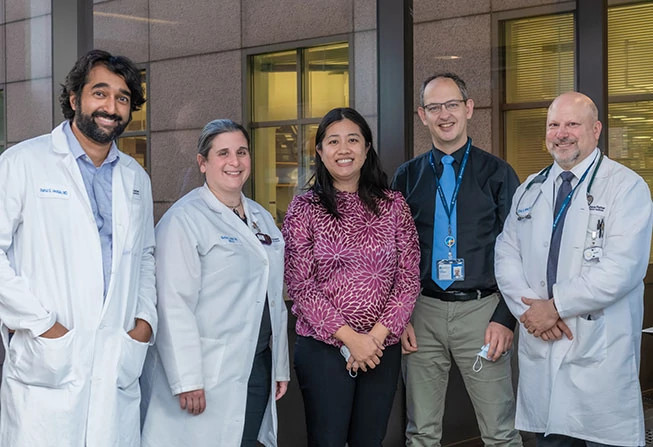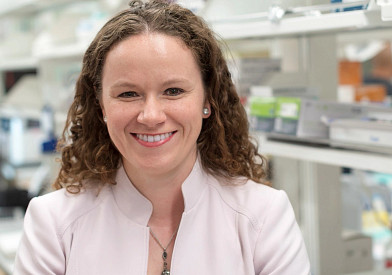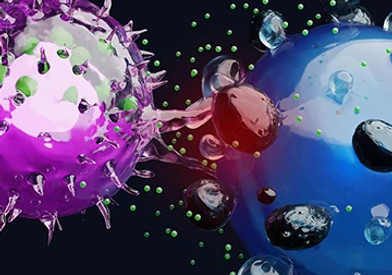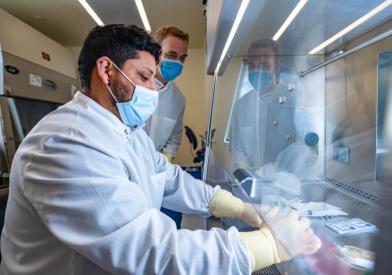What Is Acute Myeloid Leukemia?
Acute myeloid leukemia (AML) is a blood and bone marrow cancer in which the bone marrow makes immature white blood cells called myeloblasts or "blasts." This kind of cancer is called "acute" rather than "chronic" because it tends to be a fast-growing type of leukemia.
Blastic plasmacytoid dendritic cell neoplasm (BPDCN) is a rare subtype of AML. Learn more about our specialized BPDCN Center.
Incidence
AML can be diagnosed at any age, but affects mostly older adults. The median age at diagnosis is 68 years.
Risk Factors
Some patients with AML have no known risk factors for developing the disease. Recognized risk factors for AML include:
- Being male
- Being older
- Having a history of smoking
- Having had treatment with certain types of chemotherapy or with radiation therapy in the past
- Having a history of a blood disorder, such as myelodysplastic syndrome, myeloproliferative neoplasm, or aplastic anemia
- Having an inborn condition such as Down syndrome, Fanconi anemia, or dyskeratosis congenita (DKC)
- Heavy exposure to certain hazardous chemicals, such as benzene
- Genetic mutations that may be associated with inherited risk
Signs and Symptoms
- Fever
- Unexplained weight or appetite loss
- Weakness or fatigue
- Pain or fullness below the ribs on the left side
- Shortness of breath or difficulty exercising
- Easy bruising or bleeding
- Night sweats
- Infections
These symptoms can have many causes and may not be due to cancer. However, it is important that you discuss persistent symptoms with your primary care doctor.
Growth and Spread
AML is often a fast-growing disease, so timely and prompt diagnosis and initiation of treatment are important. Even though AML is usually a cancer of the blood and bone marrow, it can sometimes spread to other organs, such as the skin, brain, spinal cord, or spleen.
Prognosis
As with any cancer, prognosis (chance of recovery) and long-term survival can vary greatly from patient to patient. The prognosis depends partly on:
- Certain molecular mutations or chromosomal changes in your bone marrow
- Whether you had chemotherapy in the past to treat a different cancer
- Whether you have a history of a blood disorder, such as myelodysplastic syndrome or myeloproliferative neoplasm
- Whether the cancer has spread outside the marrow (extramedullary involvement)
- Your age
- Other health conditions you may have






